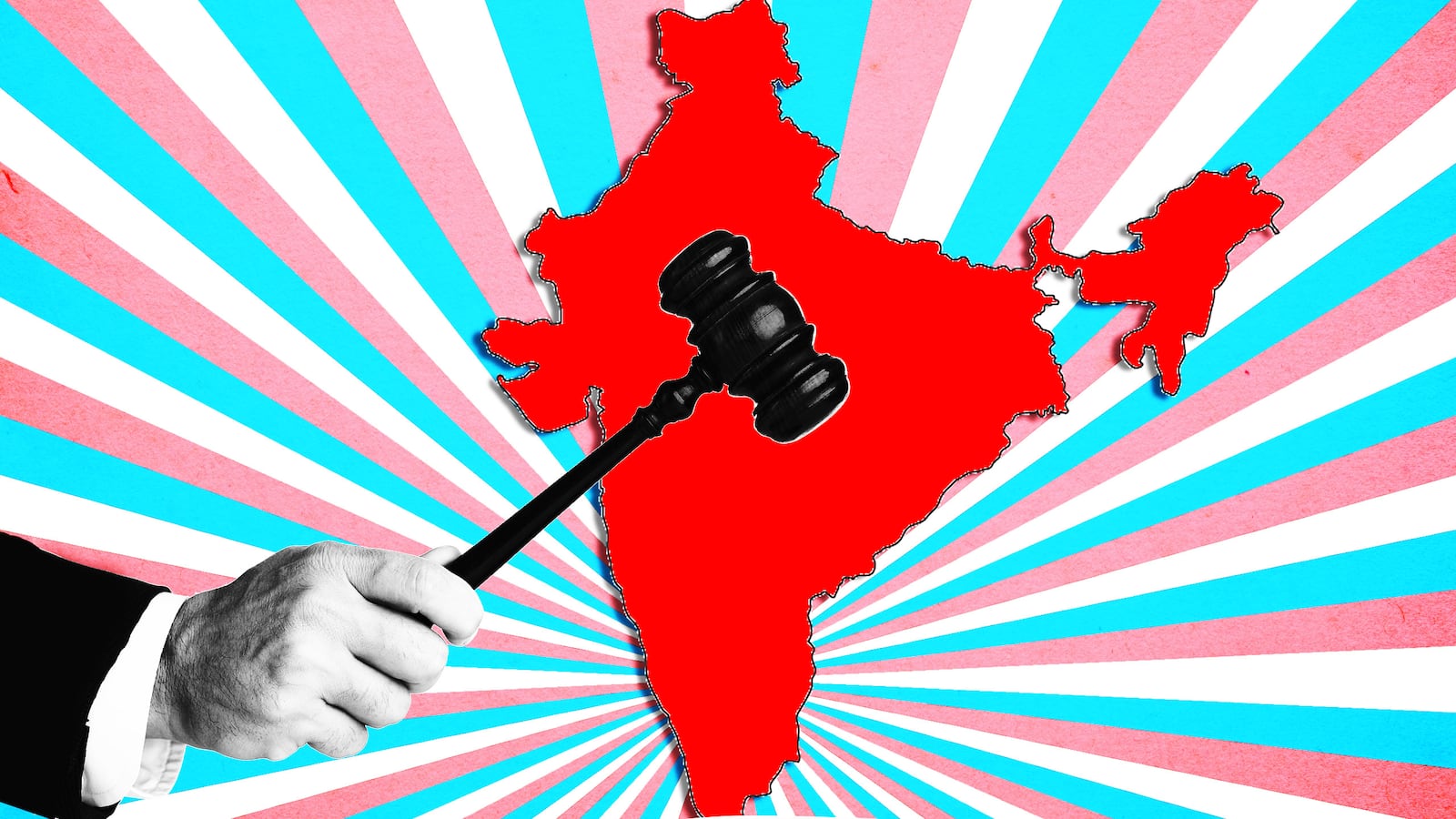In 2014, the Supreme Court of India ruled that “it is the right of every human being to choose their gender”—a breakthrough decision for the two million transgender people who live in the world’s second most populous country.
Five years later, and only months after India decriminalized gay sex, the Parliament of India is weighing a bill that advocates say would do immeasurable harm to its already vulnerable transgender population.
“It is a terrible, draconian bill that will oppress us more than empower,” the Sampoorna Working Group, an advocacy organization for transgender and intersex Indians, told The Daily Beast of the proposed Transgender Persons (Protection of Rights) Bill—which SWG believes would be more appropriately called the “Prohibition of Rights” bill.
In its most recent form, the bill would set up a two-tired system for transgender people to gain legal recognition: those who can certify that they have received sex reassignment surgery would be able to change their legal gender from male to female or vice versa—but everyone else would have to appear before a “district screening committee” to be sorted into a third, separate gender category.
The bill would also ban organized begging, which the poorer Hijra community of transgender and intersex Indians often relies on for subsistence.
Adding insult to injury, human rights advocates say, is the fact that the bill would not add the transgender community to the Indian government’s system of reservation, which helps oppressed groups recover from the effects of discrimination.
Human Rights Watch researcher Kyle Knight told The Daily Beast that the proposed legislation would be “doubly marginalizing” for India’s transgender community.
The bill would effectively “yank away and criminalize their form of income generation,” said Knight, while also failing to “include [them] in the way that [the government] has historically uplifted other marginalized communities.” In other words: all hurt, no help.
“It is clear that the government is trying to force this unconstitutional bill on us in an attempt to curb our rights rather than protect them,” Brandt D’Mello, a transgender rights activist from Bombay, told The Daily Beast.
The bill, as Radio New Zealand reported, passed India’s lower house of Parliament and was scheduled to be presented in the upper house on January 8. But the bill wasn’t presented, SWG told The Daily Beast, due to “disarray over other issues” in the upper house, which means that the next window for consideration would be between January 31 and February 13.
According to SWG, the Indian government has tried to frame the bill as a positive for the transgender community, which has long been awaiting the full implementation of the country’s groundbreaking 2014 Supreme Court decision. The transgender community has vocally disputed that framing.
“Because of the massive protests by trans people across the country—and press coverage of our protests—it is a difficult claim to make anymore,” SWG told The Daily Beast.
The bill has indeed sparked massive protests, both in the streets and on social media under the hashtag #StopTransBill, as RNZ reported. But those protests have yet to provoke meaningful change in the language of the bill itself.
“The trans community has repeatedly made it clear that we do not want this bill—and that we have both told the government what we want and had our issues and demands recorded,” D’Mello—who himself authored a list of 18 problems with the bill—told The Daily Beast. “And the bill still reflects virtually none of it.”
The language of the proposed legislation is a far cry from the model that human rights advocates recommend for legal gender recognition: self-identification without obstacles.
The language of the 2014 Supreme Court judgment, says Knight, was much closer to that model, “very rights-based” and “very progressive.” (In September 2018, the Indian Supreme Court passed a similarly progressive rulingrevoking a 19th-century British penal code that criminalized same-sex relationships.)
The fact that the transgender bill is so different from the Supreme Court ruling, Knight says, shows what happens when prejudice informs policy. The transgender community in India may be visible—but those in power, says Knight, still want them to remain separate and apart from the rest of society.
“I think what this process has shown as pen hits paper is that the lawmakers are stuck in that framework of convenient pluralism,” he told The Daily Beast.
Knight is hopeful that the bill will not pass in its current form, thanks to the activists on the ground who have drawn attention to its shortcomings. But what happens when it gets introduced to the upper house remains to be seen.
One Indian transgender rights group, Lesbians and Bisexuals in Action, told The Daily Beast that they would pressure members of Parliament to “agree that the bill needs to be discussed in more detail by a select committee before being voted on in the whole house.”
The worst-case scenario would be for the upper house to approve it quickly—but even then, D’Mello says, the transgender community “will continue to fight it even if the government does wrangle a passing.”
And in the meantime, transgender Indians want to send a message to those concerned about global LGBT rights: The bill that is supposedly for them is actually against them.
“We would like the world to know that the current government of India is trying to oppress us further in the guise of making legislation,” said SWG. “We want you to stand in solidarity with trans communities in India who have unanimously protested against this bill.”






